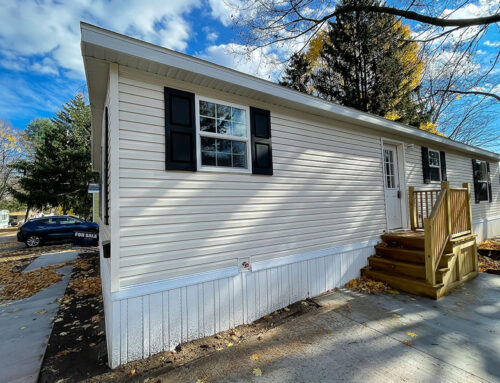Even as a brand new real estate investor without a project under his belt, Paul said he felt pretty confident about his ability to buy houses to renovate and sell. For as long as I’ve known him, which goes way back to our UPenn days, he’s been pretty confident about everything he tries. So, his boasting came as no surprise. When he’s passionate about something, he goes all in and learns everything he can in order to master his craft as quickly as possible.
But, he’d hit a small snag that could potentially turn into a big problem, which is why he called me up. Simply put, he needed to find a way to fund his deals. He figured there must be plenty of hard money lenders in Philadelphia, but before he placed all his faith in what’s advertised online, he asked if I could make some recommendations to help narrow his search. As a long-time professional real estate investor with a lot of properties under my belt, I said, of course, I can.
Funding Deals With Hard Money Lenders in Philadelphia
Paul’s snag is a common one, but it’s also fairly easy to fix. To invest in real estate, you’ve got to have money and, when you’re new to investing, it’s likely that you don’t have it all on hand. But, even the most seasoned of us need help funding real estate investment opportunities from time to time. So, we turn to lenders. The problem with traditional lenders, however, is that they rarely close fast enough if they’re even willing to lend on an investment deal at all. Investing in residential property is risky—riskier than most banks and credit unions are comfortable with. Hard money lenders, however, are willing to take that chance. And, they can take that chance because the terms they offer are usually based on the property itself and its value as collateral, rather than on you.
If you haven’t used it before, getting a good grasp on how hard money works can seem a little intimidating. But, most Philadelphia lenders do a fair job of spelling out their loan details online and I’ve further distilled the financing terms of three of them here to help you understand what you can expect—or not. Let’s take a look.
Hard Money PA provides short-term financing for residential investment properties, whether you’re flipping houses or buying them to renovate and hold. Loan terms can be anywhere from six to 12 months, which suits most rehab timelines perfectly, and you can make interest-only payments for the life of the loan, which allows you to keep your funds focused on repairs. They can loan up to 80% of the property’s value in amounts ranging from $50,000 to one million and claim to do it quickly. All you have to do is fill out an online form with details about the property, including what you plan to do with it, then list the amount you need and for how long.
Unfortunately, other than the general loan timeline and amounts, there is little else listed on Hard Money PA’s website. That leads me to believe that your interest rate and origination fees are determined only after you’ve emailed requesting a loan. And, that lack of transparency makes me question whether you’ll be given the best financing terms available when you apply. Plus, there’s no mention of how quickly you can expect an approval—or a denial—or how fast they can close. Since time is of the essence when you want to fund a deal, you might not want to waste it on a lender that makes getting up front information so hard.
Rehab Financial Group (RFP) also offers loans on multi-family units and single-family homes bought as investment properties. Terms are six to 12 months, after which you’ll need to refinance or pay the loan off. But, if you’re able, you can choose to repay it early without penalty. They can lend 100% of your purchase and rehab costs up to 65% of the property’s After Repair Value (ARV)—which is more than what many lenders can do—on amounts as high as two million dollars. They also offer interest rates as low as 11% and only charge an origination fee of two to five percent, or points, to be paid at closing. Speaking of which, closings are fast; you can expect your project to be funded in two weeks or less.
As competitive as RFP’s financing terms are, however, you’ll also have to be competitive to qualify. Unlike some other hard money lenders, they consider your credit history and ability to make payments when determining your rates. To qualify at all, you’ll need a minimum FICO score of 620. But, if you’ve got a foreclosure on your record, spent some time unemployed, or had any trouble with a previous investment, your creditworthiness might have taken a hit. And, less-than-perfect credentials are going to equal less-than-ideal terms—and possibly a lower loan amount too. If you can’t cover your costs to buy and rehab a property, or you’ve got to pay through the nose to do it, you might want to pick a different lender.
Direct Mortgage Loan Company loans on residential investment properties for the short-term but works with you to produce scenarios that fit your specific project. They can finance as little as 50% or as much as 100% of your purchasing and rehab needs, up to a maximum of one million dollars. Once you’ve established a positive relationship with them, however, they’re willing to loan more and close fast. But, even as a new borrower, it’s possible to receive funds in five business days or less. If you’re trying to build your real estate investing business in a competitive city, offering fast closes to motivated sellers helps to put your offer on top. Interest rates and other fees vary, and these costs will depend on your creditworthiness, but their website claims they will work with you however they can to get, and keep, you as a customer.
On the surface, that this hard money lender considers a variety of factors—like their relationship with you and your credit history—when determining your eligibility and rates for a loan does seem helpful. In an ideal scenario, the combination of these factors could secure you the best financing terms available. But, the point of using asset-based lenders is that they don’t behave like traditional mortgage lenders. When you’re just starting out and trying to build a property investment portfolio, you need a company that’s willing to take a risk on you and still give you the best rates possible.
When it comes down to it, if you know how to find good investment deals most hard money lenders will find a way to work with you. But, as you’ve seen, it could also cost you. You might have to provide a real estate investor credibility kit if you haven’t done a deal or two. Typically, however, if there is any chance a lender will make money by loaning to you, then you stand a chance of getting your project funded.
Finding the Best Hard Money Terms in Philadelphia
As an independently owned and operated HomeVestors® franchisee, I’m always confident that I’ll get the funding I need. I have access to a variety of marketing tools, including the nationally-recognized “We Buy Ugly Houses®” brand and resources that help me find deals that lenders want to fund. And, HomeVestors®’ proprietary valuation tool, ValueChek™, runs repair numbers on the spot so that I can estimate renovation costs and know how much to offer—and how much to borrow. Last, but certainly not least, I also have an experienced Development Agent mentor who can evaluate my property purchase as a recommended qualified purchase for a HomeVestors® loan. So, it is much easier not to have to second-guess if I’m getting a good deal—on a property or a loan.
If you’re passionate about real estate investing, like Paul, contact HomeVestors® for more information about franchise opportunities today. I’m confident you’ll be glad you did.
Each franchise office is independently owned and operated.
Contact
"*" indicates required fields





